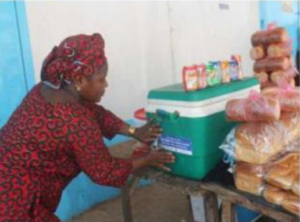
Land rights in Liberia have been surrounded by an unstable environment due to a lack of clearly defined policies and laws. Liberia’s land administration and management system involves formal institutions and customary traditions that provide a complex landscape that is difficult to navigate and provides little guidance to citizens. As a result, in mid-2010, the Liberia Land Commission established a land policy working group comprising key government ministries and agencies to review the policy, legal, and regulatory framework in Liberia. In February 2012, the Land Commission constituted a Land Administration Task Force to focus on the institutional arrangement for land administration and recommend options for reforming and improving the land administration system in Liberia.
A Land Rights Policy was formally accepted by the government in May 2013. The Commission presented to the President of Liberia, H.E. President Ellen Johnson Sirleaf, a draft Land Authority Bill, which would create a dedicated government body for land governance, and which has subsequently been submitted to the National Legislature for their consideration and passage into law. In addition, a draft Land Rights Bill is currently under consideration by the government.
In short order, the USAID Land Governance Support Activity (LGSA) has begun a series of public outreach campaigns to inform the public of the provisions of these proposed laws, thereby assisting the Liberian government in the establishment of more effective land governance systems. In December 2015, staff from the Land Commission and LGSA together visited 7 of Liberia’s 15 counties, engaging national and community leaders, including chiefs, mayors, magistrates, lawmakers, as well as the media, community-based organizations, and local residents, circulating information about the proposed Land Rights Law and the benefits to Liberians. The team also listened to feedback from the communities.
Local residents, including small vendors, or petty traders as they are known in rural Liberia, who are mostly women, are excited about having new land laws that will protect their land rights. Fatu Leah, a trader in Bomi County, shared, “land business here makes me seriously scared, especially when I see the people holding cutlasses and other weapons fighting for land. People are really desperate for land business. That is why I am happy about this law. When it come, I really be happy. Maybe that’s the time I will start thinking about buying my own land.”

